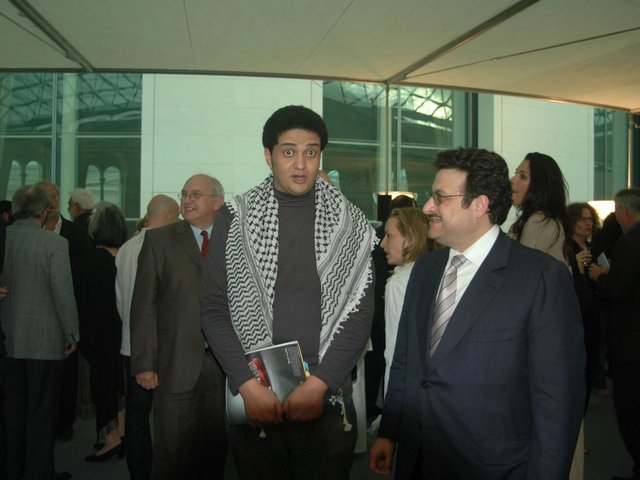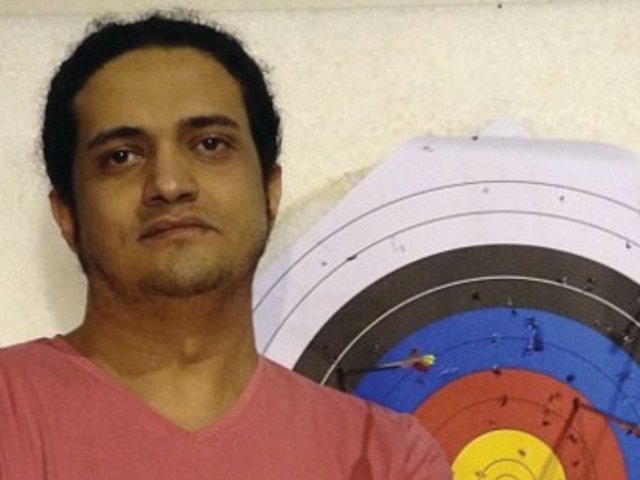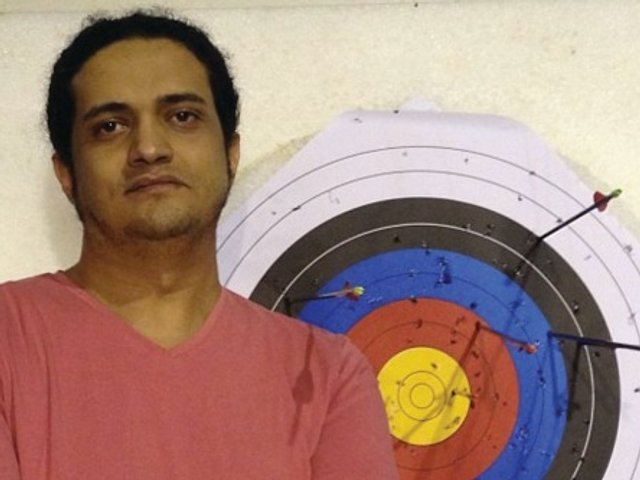Art world figures have condemned the decision by a Saudi court to sentence Ashraf Fayadh, a leading Saudi Arabia-based artist and poet, to death for allegedly renouncing Islam.
In May last year, Fayadh was sentenced to four years in prison and 800 lashes. But on 17 November, another judge in the court of Abha in southern Saudi Arabia ruled that Fayadh be executed for apostasy. The non-governmental organisation Human Rights Watch (HWR) says that an appeals court and the Supreme Court must still approve the sentence.
Fayadh oversaw an exhibition entitled Mostly Visible at the Al Furusiyya Marina shopping mall in Jeddah, which featured emerging Saudi artists in 2013. The same year, he co-curated the exhibition, Rhizoma, at the Venice Biennale, which was organised by the UK-based, non-profit organisation Edge of Arabia.
“Ashraf is a positive force in the Saudi art scene, as both an artist, writer and a curator. Anyone with an interest in Saudi culture and its institutions has to take this seriously. International cultural institutions working with Saudi have to be on the side of any artists facing persecution,” says the UK artist Stephen Stapleton, who co-founded Edge of Arabia with the Saudi artists Ahmed Mater and Abdulnasser Gharem.
Mater says that he spoke to Fayadh yesterday on the phone; he told him that the ruling bewilders him, saying, “I am only an artist."
Hossein Amirsadeghi, the editor of the book Art & Patronage: the Middle East, says: “We should protest from the highest pillars of morality—this bloodiness and religion has become unbearable; religion is a personal journey, not something that should be used to herd people as sheep.” Charles Esche, the director of the Van Abbemuseum in Eindhoven, says: "The sentence on Ashraf Fayadh is incomprehensible and inhuman... I only hope that this emergency provokes the artistic community (artists, curators, writers, directors etc.) to be outspoken and definitive in its opposition."
According to the HWR, Fayadh was detained by Saudi Arabia’s Committee on the Promotion of Virtue and Prevention of Vice, or religious police, in August 2013. He was arrested at a café in Abha after another artist reported that Fayadh cursed the Prophet Muhammad and the Saudi government. In addition, Fayadh allegedly passed around a book of his own poetry that promoted atheism.
The artist was released but was re-arrested in January 2014, facing charges such as “spreading atheism and promoting it among the youth in public places, and mocking the verses of God and the prophets”.
Fayadh denied all charges at his trial, which took place between February and March last year. He also stressed that his book Instructions Within, published a decade before, was not blasphemous, Human Rights Watch says.
Meanwhile, Mona Kareem, a Kuwaiti activist, told the UK newspaper The Guardian that Fayadh, who was born in Saudi Arabia, has been targeted because he is of Palestinian descent. Other reports say that the poet faced punishment after posting online a video showing the Saudi religious police beating a man in public. The Saudi Embassy in London declined to comment on the case.
UPDATE: The Guardian reports today (25 November) that more than a dozen organisations, including the International Association of Art Critics, have signed a joint statement condemning Fayadh’s conviction, which will be delivered to the Saudi embassy in London on 27 November. The historian Simon Schama has also called for the death sentence to be overturned.




